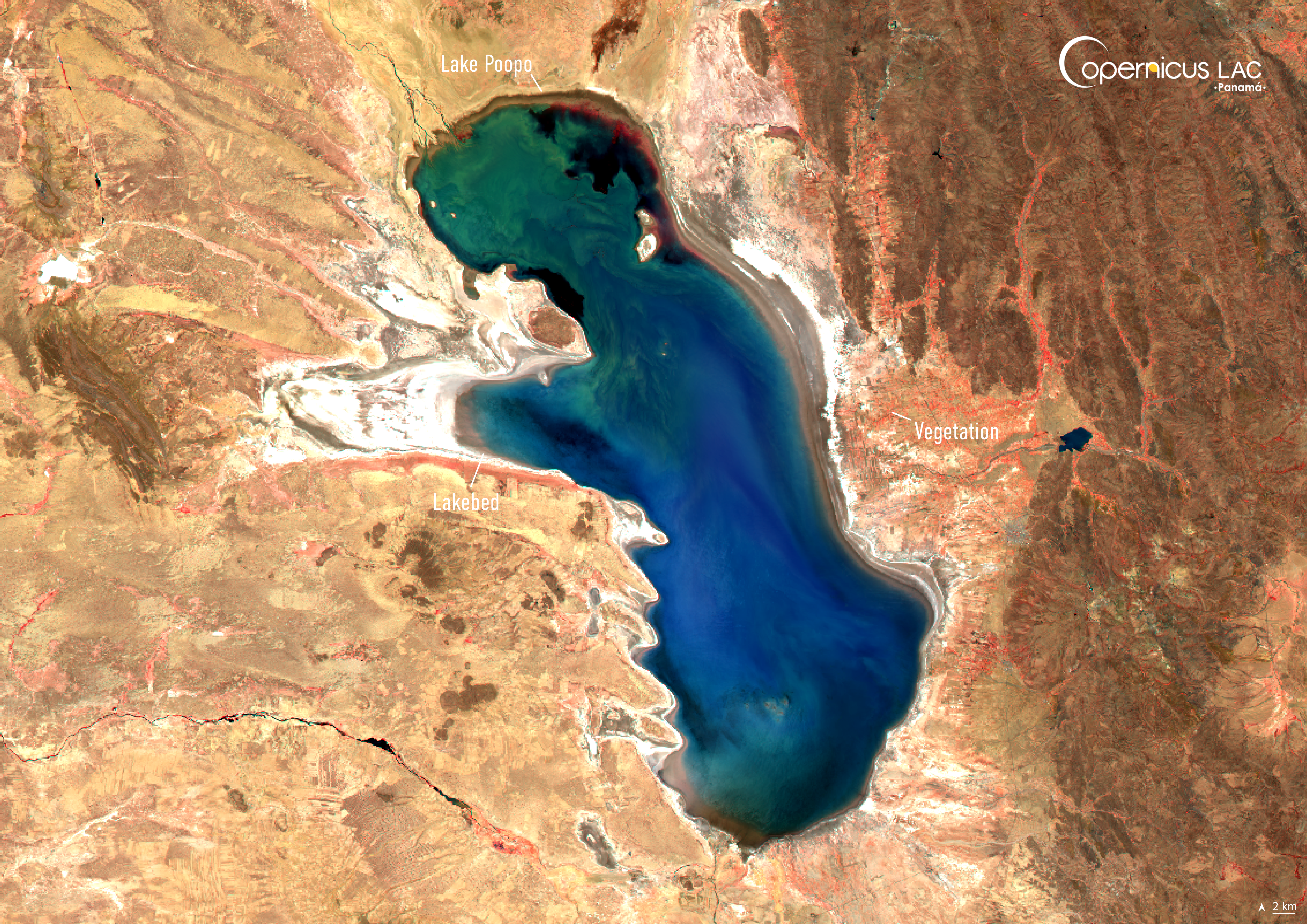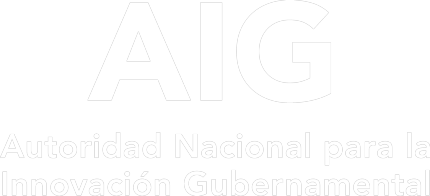
Date: 29 September 2025
Location: Lake Poopo, Bolivia
Credit: Copernicus Sentinel-2 image, processed by the CopernicusLAC Panama Centre
Description:
This Copernicus Sentinel-2 image, acquired on 29 September 2025, shows Lake Poopo in Bolivia.
In this false-colour view, vegetation appears in red, contrasting with the arid Altiplano and saline soils which dominate the landscape. Once Bolivia’s second-largest lake, Poopo is both endorheic (with no outlet) and shallow (average depth of 3 metres), making it highly vulnerable to water loss.
In recent decades, prolonged droughts, water diversion for irrigation and mining, and the impacts of climate change have accelerated its decline. In 2015, Lake Poopo almost completely dried up, with devastating consequences for biodiversity, migratory birds, and the Indigenous Uru communities whose livelihoods depended on fishing. The growing pressure on fragile aquatic ecosystems in semi-arid regions highlights the key role of Earth Observation (EO) in delivering insights into water bodies and surrounding landscapes health, enabling timely action by local authorities and communities.
In this context, the CopernicusLAC Panama Centre supports institutions and stakeholders across Latin America and the Caribbean in leveraging the free and open data of Copernicus for disaster risk reduction. An important initiative is the co-development of tailored EO-based Services for climate-related risks such as the service for drought which combines Copernicus data with climate records to provide systematic monitoring and on-demand analysis of drought conditions, helping to safeguard ecosystems, and strengthen resilience in vulnerable regions, including Lake Poopo.
To stay updated on the latest activities from our Centre, be sure to follow us on LinkedIn, Instagram and X.
Background Information
The Copernicus LAC Panama Centre’s activities take place within the overall context of the EU-LAC Digital Alliance, which is a strategic framework for promoting cooperation between the EU and the Latin America and Caribbean (LAC) region on digital and space issues under the EU Global Gateway umbrella. Within this context, the European Space Agency (ESA) is coordinating the Centre’s implementation on the basis of a Contribution Agreement with the Directorate General for International Partnerships (DG INTPA) of the European Commission, and in close collaboration with Panama’s government, MIRE (Ministry of Foreign Affairs), Government Innovation Authority (AIG), and SENACYT (National Secretariat for Science, Technology and Innovation).
The CopernicusLAC Panama Centre will serve as a hub for innovation in the Latin America and Caribbean region, supporting national and local entities in leveraging Copernicus data and information to boost socio-economic benefits and resilience. In addition to providing engagement opportunities, the Centre is developing geospatial Disaster Risk Reduction (DRR) Earth Observation (EO) Services (addressing hydrometeorological hazards, wildfires, geological hazards, and hazard exposure) in close collaboration with local users and stakeholders, to whom they will be handed over to ensure that the unique needs of the region are addressed in the long term.
In addition, knowledge and skills transfer is a key element of the CopernicusLAC Panama Centre, which hosts a Digital Campus with access to training modules and educational resources for technical users and citizens alike. The Centre will also organise community-building events, policy dialogues and industry matchmaking, as well as hackathons and other EO data challenges to stimulate user adoption of Copernicus data and innovation. These events will also foster cross-collaboration among EO, disaster risk reduction (DRR) and other relevant ecosystems.
Finally, the Centre will support the development of a high-power computing and data storage cloud infrastructure for the LAC region. One of the final objectives of the Centre is to promote the development of communities of practice and to strengthen the knowledge and use of tools for DRR and other application areas in the public sector, academia, the private sector, and social organisations.






